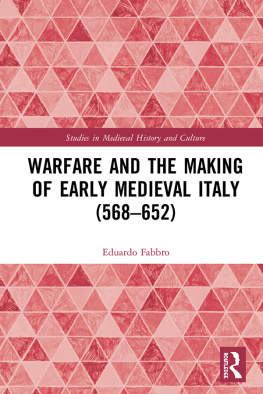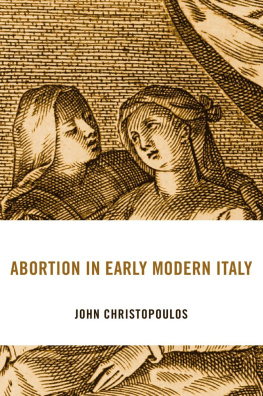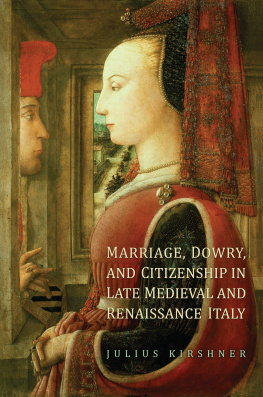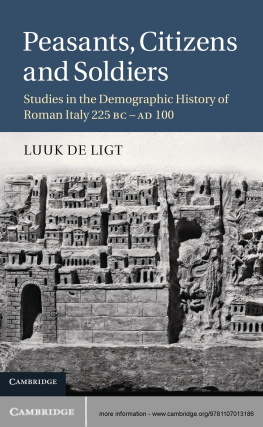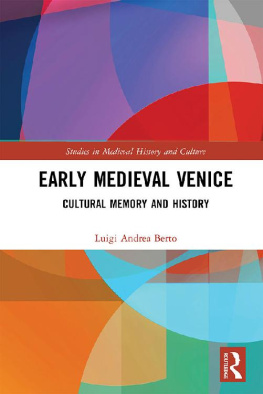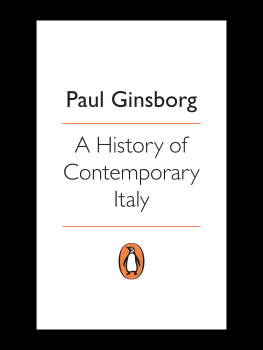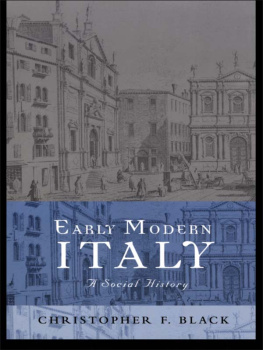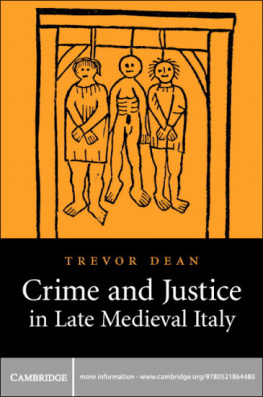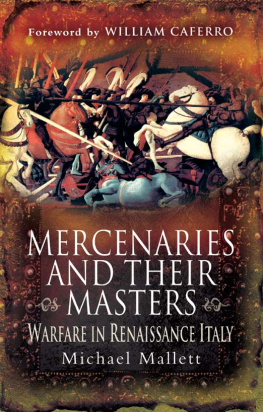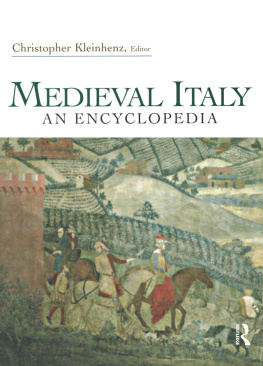Warfare and the Making of Early Medieval Italy (568652)
Devastated by two decades of war and ravaged by the spread of the plague, large parts of Italy fell quickly into the hands of a group known to history as the Lombards. By the early 570s the Lombards were firmly established in Italy, which they ruled without ever fully unifying it. The events of the late sixth century shaped early medieval Italy. They also affected how Italian history was written: the Lombards were blamed for plunging the peninsula into the darkness of the Middle Ages, finally ending Roman civilization. But was it really a barbarian invasion that created medieval Italy? What was the role of the imperial authorities and the papacy? In Warfare and the Making of Early Medieval Italy, Eduardo Fabbro brings a new take on the changes that shook Italy at the end of the sixth century. Moving past traditional narratives of barbarians and battles, the book re-evaluates the impact of war in creating early medieval Italy. Fabbro brings to the fore a complex picture that includes not only invading barbarians but also rebelling soldiers, disgruntled farmers, vexed commanders, and cunning adventurers trying to make the best of a bad situation. Through a complete reassessment of contemporary and later sources, this book rewrites the history of the first decades of Lombard rule and shows that warfares impact went far beyond battles and invasions; it rewired the social and political links that bound the region.
Eduardo Fabbro received his PhD from the Centre for Medieval Studies at the University of Toronto. He specializes in early medieval Italy, military history, and the work of eighth-century historian Paul the Deacon. He is currently a lecturer at Trent University.
Studies in Medieval History and Culture
Recent titles include
The Charisma of Distant Places
Travel and Religion in the Early Middle Ages
Courtney Luckhardt
The Death Penalty in Late Medieval Catalonia
Evidence and Signification
Flocel Sabat
Church, Society and University
The Paris Condemnation of 1241/4
Deborah Grice
The Sense of Smell in the Middle Ages
A Source of Certainty
Katelynn Robinson
Travel, Pilgrimage and Social Interaction from Antiquity to the Middle Ages
Edited by Jenni Kuuliala and Jussi Rantala
First published 2020
by Routledge
2 Park Square, Milton Park, Abingdon, Oxon OX14 4RN
and by Routledge
52 Vanderbilt Avenue, New York, NY 10017
Routledge is an imprint of the Taylor & Francis Group, an informa business
2020 Eduardo Fabbro
The right of Eduardo Fabbro to be identified as author of this work has been asserted by him in accordance with sections 77 and 78 of the Copyright, Designs and Patents Act 1988.
All rights reserved. No part of this book may be reprinted or reproduced or utilised in any form or by any electronic, mechanical, or other means, now known or hereafter invented, including photocopying and recording, or in any information storage or retrieval system, without permission in writing from the publishers.
Trademark notice: Product or corporate names may be trademarks or registered trademarks, and are used only for identification and explanation without intent to infringe.
British Library Cataloguing-in-Publication Data
A catalogue record for this book is available from the British Library
Library of Congress Cataloging-in-Publication Data
Names: Fabbro, Eduardo, author.
Title: Warfare and the making of early medieval Italy (568-652) / Eduardo Fabbro.
Description: London ; New York, NY : Routledge/Taylor & Francis Group, 2020. | Series: Studies in medieval history and culture | Includes bibliographical references and index.
Identifiers: LCCN 2019046993 (print) | LCCN 2019046994 (ebook) | ISBN 9780367233662 (hardback) | ISBN 9780429279522 (ebook)
Subjects: LCSH: ItalyHistory, Military476-1268 | LombardsItalyHistory.
Classification: LCC DG483 .F33 2020 (print) | LCC DG483 (ebook) | DDC 945/.01dc23
LC record available at https://lccn.loc.gov/2019046993
LC ebook record available at https://lccn.loc.gov/2019046994
ISBN: 978-0-367-23366-2 (hbk)
ISBN: 978-0-429-27952-2 (ebk)
Maps
Tables
If it takes a village to raise a child, it takes a legion to write a book. I received much help and support from Nick Everett, who supervised the dissertation that eventually became this book, and who remains a constant guide, colleague, and friend. Also, Giulio Silano and Michael Dewar provided thoughtful insights on this project in its earlier stages. This book owes much to Alexander C. Murray, with whom I discussed several of the ideas presented here, and who was an endless source of advice, support, and kindness. He will find many arguments here that sprang from our conversations, and much of the Frankish material here depends on his insights (but the mistakes are my own). Several people read the manuscript and provided meaningful comments and contributions, too many to be named here. Especially, I would like to thank Chris Wickham, who read and thoroughly commented on the early version of this book, as well as Richard Shaw and Lawrin Armstrong. I was fortunate to receive much encouragement in the last years, and the list of faculty, staff, and colleagues that contributed in some way to this work would be extremely long. To name just a few, I would like to thank Vicente Dobroruka and Maria Filomena Coelho, at the University of Brasilia, Travis Bruce, at McGill, Grace Desa, David Townsend, and Nick Terpstra, at the University of Toronto. Special thanks go to Michael Greenwood at Routledge. Last but not least, I would like to thank my fellow rank-and-file scholars, Daniel Jamison and Terri Sanderson (who also produced the maps), Dylan Wilkerson, Julia Warnes, and Annika Ekman. Above all, I would like to thank my parents and my beloved sister, for their unwavering support.
This book would not have been possible without the generous support of the Mellon Foundation.
Agath. | Agathiae Myrinaei historiarum libri quinque, ed. R. Keydell (Berlin: De Gruyter, 1967). |
Agn. | Agnellus Ravennatis, Liber pontificalis ecclesiae Ravennatis, ed. Deborah M. Deliyannis, CCCM, Turnhout: Brepols, 2006 [Translation: Agnellus of Ravenna, The Book of Pontiffs of the Church of Ravenna, trans. Deborah M. Deliyannis (Washington: The Catholic University of America Press, 2004). |
Amm. | Ammianus Marcellinus, Res gestae, ed. J.C. Rolfe, 3 vols (Cambridge: Harvard University Press, 193539). |
Bede, Chr. Mai. | Beda Venerabilis, Chronica Maiora, ed. Th. Mommsen, MGH AA 13 (Berlin: Weidmann, 1898), pp. 223333. |
Cass. Var. | Cassiodorus, Variae, ed. Th. Mommsen, MGH, AA, XII (Berlin: Weidmann, 1894). |
CDL | Codice Diplomatico Longobardo, 1, 2, ed. L. Schiaparelli (Rome: Tipografia del Senato 192933), 3, ed. C.R. Brhl (Rome: Tipografia del Senato 1973), 4/1, ed. C.R. Brhl (Rome: Tipografia del Senato 1981), 4/2, ed. H. Zielinski (Rome: Tipografia del Senato 2003), 5, ed. H. Zielinski (Rome: Tipografia del Senato 1986). |
Chr. Patr. Grad. | |

